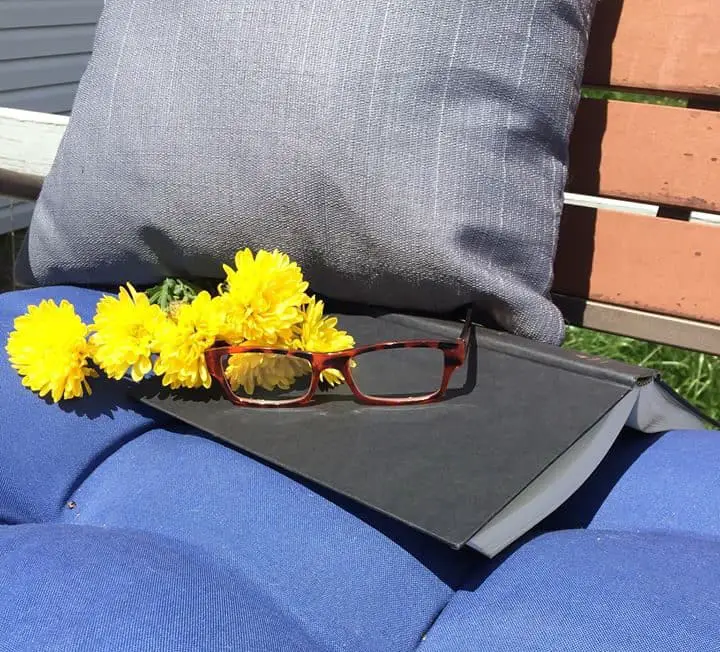
Every culture has traditions and rituals when someone dies, such as funerals, memorials, and gravestones. In a sense, we have a structure on how to grieve. But some losses in life are ambiguous. We may not even recognize them as losses and certainly don’t know how to grieve them. When we closed our bookstore, I realized I needed to cope with ambiguous loss and stumbled trying to find my way.
Nine months after we closed the doors, I look back to see what helped and what didn’t. This is what I learned: Acknowledge the grief. Identify losses. Invest time. Be misunderstood. Share the journey. Apply bibliotherapy. Ponder Sovereignty. Create. Pursue Legacy. Dream.
Closing the bookstore meant the end of a 10 year chapter of my life as a bookseller.
I didn’t anticipate how hard it would be. I didn’t understand at first that I was grieving, the magnitude of my loss. Looking back, I see what helped me navigate the uncharted territory. Every step into the future is uncharted, isn’t it? Which is why we’re drawn to self-help, because we want someone who can show us the way. When the truth is, no one has lived our life before and no one knows what the future will hold or how to operate in that unknown entity.
I owe my introduction and understanding of ambiguous loss to Marilyn Garner. Dr Pauline Boss coined the phrase ambiguous loss to refer to atypical losses, such as losing a loved one to Alzheimer’s–the body still is present, but the person and personality we love is gone. She identified an unresolved grieving process in these scenarios.
I was fascinated by how this concept applied to global nomads, especially third culture kids. Leaving one culture and way of life to enter another one often resulted in unresolved grief. It explained so much.
But now I’m seeing it in a broader context.
Closing our bookstore might not technically fit into the category of ambiguous loss or disenfranchised loss, but I see many similarities, and just giving it a name helps me. At the least, it can be called an atypical loss.
There’s no funeral and no grave to visit. A business is not a human or pet, so the loss can be hard to understand. Just like human relationships, businesses can be complicated, with a mix of positive and negative and involve huge investments of time, energy, effort and money.
I think it helps to expand our understanding of grief and loss and explore new ways to cope with ambiguous loss. It helps me, anyway. I still have so far to go.
There are circumstances we find ourselves in that we don’t recognize as loss.
It might be a divorce or break up or loss of a friendship. It might be a re-location that implies the loss of a community network, favorite stores and restaurants, friendships and a familiar rhythm of life. It could be the loss of health, or a piece of health, such as eyesight.
It could be a career loss, losing a fulfilling position that was a good fit, or a financial reversal. Even a car accident or news of a loved ones’ addiction could be a loss. Many times we don’t realize we’re grieving.

Acknowledge Grief
Sometimes the hardest part is admitting to ourselves that we are grieving, maybe even acknowledging that there is a loss.
I think this is key for ambiguous loss, disenfranchised loss or any other atypical loss. We don’t even realize where the negative feelings are coming from. We don’t realize we’re grieving, may not even understand that we’ve suffered a significant loss.
That light bulb moment can be critical. Giving it a name is important. All of a sudden, we’re not alone. Someone else has traveled this road. There are ways to cope. We’re going to get through it. The future is brighter than the present.
Identify Losses
For me, the loss was different than for my husband, for my employees and for my customers. I had finally embraced the identity of bookseller, even business owner and boss. Now, it was time to let them go without achieving the success I’d hoped for.
There was also a broader loss of the way culture has changed and the way consumers shop. Bookstores have changed with the culture. The ones that survive have morphed to meet the challenge.
I’d learned a lot during those years. I knew my strengths and weakness better. I’d faced some fears and survived. That knowledge will serve me in the future.
Invest Time
When I used to hear that grieving takes time, I thought it meant for time to pass by. I didn’t stop to think that it takes TIME, like you have to invest some time into your grieving. Time to sit in the emotion. Time to cry. Time to consider your losses. Time to remember.
When you take the time, the time comes when the pain is less. The loss doesn’t feel as heavy.
Be misunderstood
It’s okay if no one understands.
I came to grips with the fact that no one really understood my loss and it was okay if they didn’t understand. I knew it was painful and I knew why. I was losing part of my identity.
In the same vein, they didn’t know the private victories and the private defeats. Letting that go was hard, knowing that there’s not a chance for a “do-over” and giving up a dream.
Some people will understand, to a certain extent.
I’m grateful for the people who offered condolences, who sent cards and left messages and expressed personally what the bookstore meant to them. It meant a lot to me. Even a few people who had closed businesses and remembered how hard it was. They knew, up to a point, what we were going through.

Share the Journey
Letting others in on the process helps. Admit that it was a mixed bag, that there’s some relief that it’s over, regret for dropped balls as well as gratitude for the blessings.
There’s a lot of good mixed in with the bad. A lot of positive and negative together. When you look back at something, it’s easy to see all the bad or all the good and forget the rest. When you’re losing something, all the good parts can be highlighted. You forget the stress, the hard times, the overwhelm, the failures. The good parts come to the surface.
Some roots are more painful than others
Closing the business and selling the property was a multi-faceted event that involved a lot of steps. Disconnecting phone service was a hard one. Sending back unsold inventory was easier. Making the decisions, dropping balls, all the frustrations you deal with while running the business plus some. Knowing that it’s the last time.
Ponder Sovereignty
I find times of loss and grieving a good time to evaluate my theology, especially what I believe about God’s Sovereignty. Did God cause this loss or did He allow it? Has He been leading down this path or have I gone astray? Can He redeem situations even as He grieves with us that they have happened? Can He work things together for good? Is God good? Is He loving?
In the case of the bookstore, we could see circumstances converging to confirm the timing was right to close the store. Three years earlier, when we made the decision to close, circumstances made it clear that the timing wasn’t right yet.
Sarah Young, in her devotional Jesus Calling, references the habit of repeatedly affirming, “I trust You, Jesus.” I’ve found this reminder to be comforting. If we believe that God is sovereign, that He is loving, that He is good, then He can be trusted with the circumstances of our lives, including our losses.
We don’t have to fear the future, even when it’s tempting. We can rest in the promise that He will never leave us or forsake us, in the midst of the pain of loss.
Learning to be grateful has been a years long learning curve for this season of my life. It’s so easy to wish things were different than they are. It’s hard to be content.
There was a lot to be grateful for when we closed the store. The timing was right. We were able to close in the black, not leaving any debt or unpaid bills. We closed with a good reputation and good testimony. This may seem like a small thing, but lots of bookstores go bankrupt. Bookstore chains go bankrupt.
We were also able to find a buyer for the property.
Even though it was hard, even though we didn’t do it perfectly, even though we dropped some balls and didn’t tie up all loose ends as well as I would have liked, overall it ended well.

Apply Bibliotherapy
My go-to method of dealing with life is to read. Some good escapist fiction is a great way to forget about the current problems of life. A Netflix binge will accomplish the same thing by just getting away from life and not thinking for awhile.
It can also encourage and inspire.
It can even promote better sleep.
Create
The process of creating gives life and hope. That brings healing. Gardening, painting, drawing, writing, decorating and cooking can be great outlets.
Some people create food that’s picture worthy. Some people make their homes a work of art. There are innumerable ways to express yourself creatively.
For me, it’s blogging. Word crafting and images, design and layout, experimenting and learning new things.
I personally believe that one way we are made in the image of God is with the desire and ability to create. And the satisfaction that comes in the process and in the product.
Pursue Legacy
I can’t think about grieving without thinking about legacy. What will remain after I am gone? What legacy am I going to leave? What legacy did the bookstore leave? Well, there’s the great people I got to know while working there, there’s the memories of their stories. The advantage of being a small shop is that there’s a lot of down time. Which means there’s time for people to share their stories.
There’s a lots of books on lots of shelves that came from our bookstore. Those won’t last forever, but amazingly, books can last quite a long time.
Dream
The hope and dreams for the future can help you move forward, but I found it was nice not to rush into the next thing. To sit awhile and consider where to put my professional time and energies. To be okay with not deciding and not rushing forward into the next thing. I was already committed to babysitting my granddaughter. In that sense, the timing was right to close the store. I was also blogging and wanting to see my blog move to the next level, knowing that would take more of an investment. I also wanted to achieve some personal goals that always seemed out of reach.
Letting go of old dreams and letting them die can make space for new dreams.
If your ambiguous loss includes the loss of dream, consider loosening your grip on that dream to make room for new ones.
Want to learn more about global nomads dealing with ambiguous loss?
Or how bibliotherapy can improve your life?
Or books that will help you make changes in your life?
Grieving is a life skill no one chooses but all can learn.
